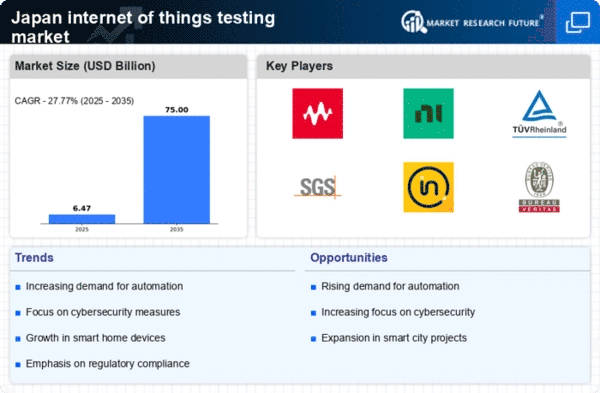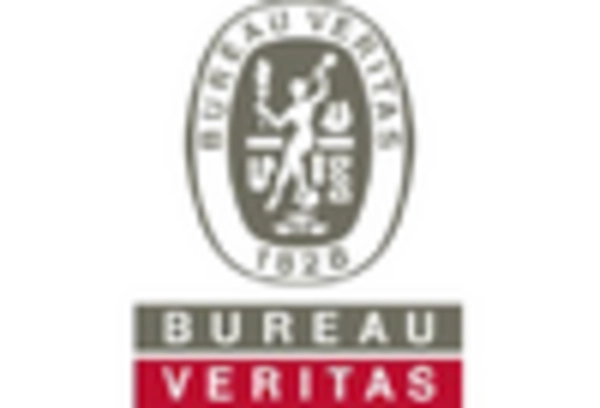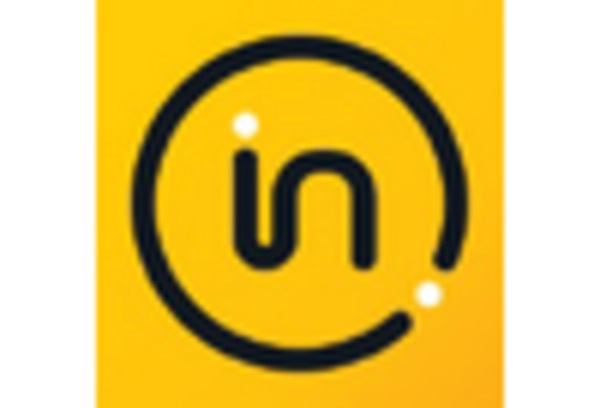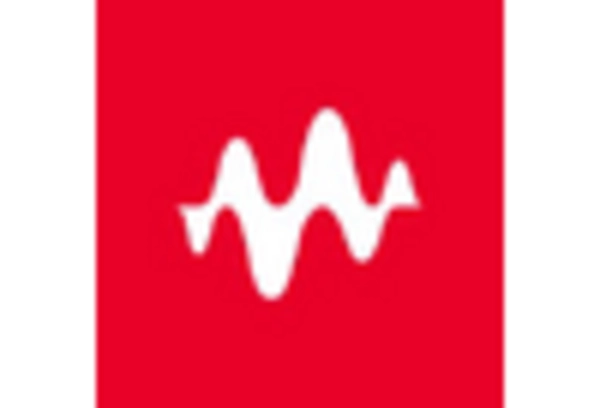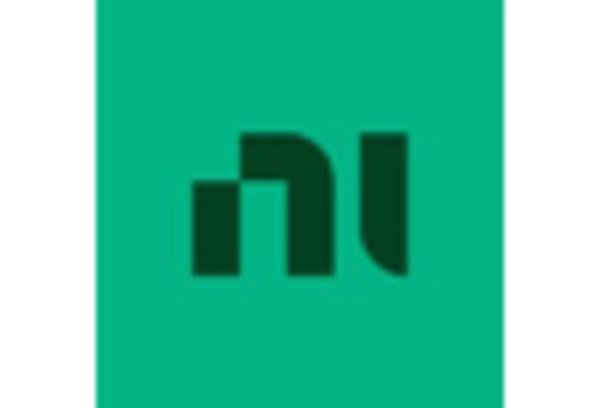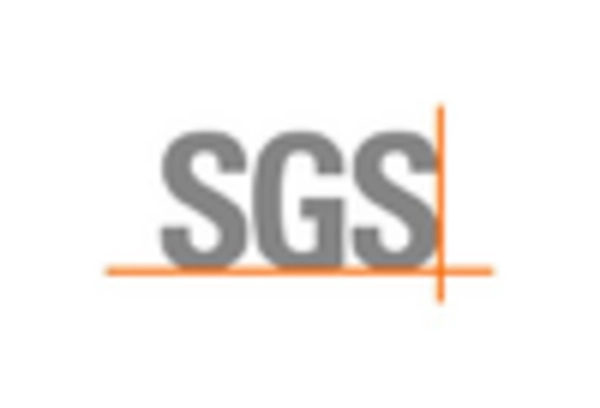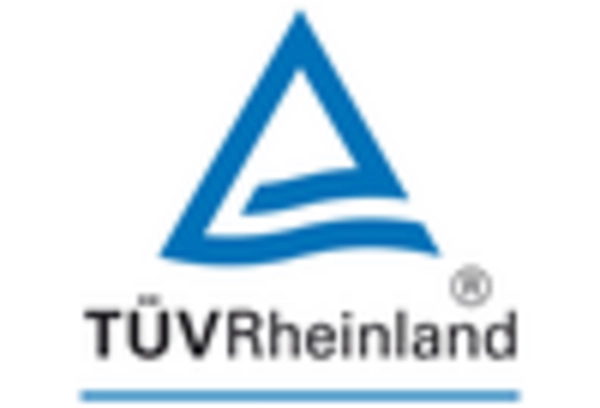Rising Demand for Smart Devices
The proliferation of smart devices in Japan is a primary driver for the internet of-things-testing market. As consumers increasingly adopt smart home technologies, wearables, and connected appliances, the need for rigorous testing becomes paramount. In 2025, the number of connected devices in Japan is projected to reach approximately 1.5 billion, indicating a substantial market for testing services. This surge necessitates comprehensive testing to ensure interoperability, security, and performance of these devices. Consequently, companies are investing in advanced testing methodologies to meet the growing demand, thereby propelling the internet of-things-testing market forward.
Growing Focus on User Experience
The emphasis on user experience in the development of IoT products is becoming a crucial driver for the internet of-things-testing market. As consumers demand seamless and intuitive interactions with their devices, companies are compelled to invest in comprehensive testing to ensure optimal usability. In Japan, studies indicate that 70% of consumers prioritize user experience when selecting IoT products. This trend necessitates rigorous testing protocols to evaluate usability, functionality, and performance, thereby driving the demand for specialized testing services within the internet of-things-testing market.
Increased Cybersecurity Concerns
As the number of connected devices rises, so do concerns regarding cybersecurity vulnerabilities. The internet of-things-testing market is experiencing heightened demand for security testing services to address these challenges. In Japan, cyberattacks targeting IoT devices have increased by 30% in the past year, prompting organizations to prioritize security in their testing processes. This trend indicates a growing recognition of the importance of robust security measures, leading to increased investments in testing solutions that can effectively identify and mitigate potential threats, thereby driving the internet of-things-testing market.
Advancements in Testing Technologies
Technological advancements in testing methodologies and tools are significantly impacting the internet of-things-testing market. Innovations such as automated testing frameworks, cloud-based testing environments, and AI-driven analytics are enhancing the efficiency and effectiveness of testing processes. In Japan, the adoption of these advanced technologies is expected to increase by 40% over the next few years, as companies seek to streamline their testing operations. This shift not only reduces time-to-market for IoT products but also improves the overall quality and reliability of connected devices, thereby stimulating growth in the internet of-things-testing market.
Government Initiatives and Regulations
Japanese government initiatives aimed at promoting digital transformation significantly influence the internet of-things-testing market. Policies encouraging the adoption of IoT technologies across various sectors, including healthcare, manufacturing, and transportation, create a favorable environment for testing services. The government has allocated over ¥500 billion to support IoT-related projects, which includes funding for testing infrastructure. These initiatives not only enhance the credibility of IoT solutions but also drive the demand for specialized testing services to comply with regulatory standards, thus fostering growth in the internet of-things-testing market.


